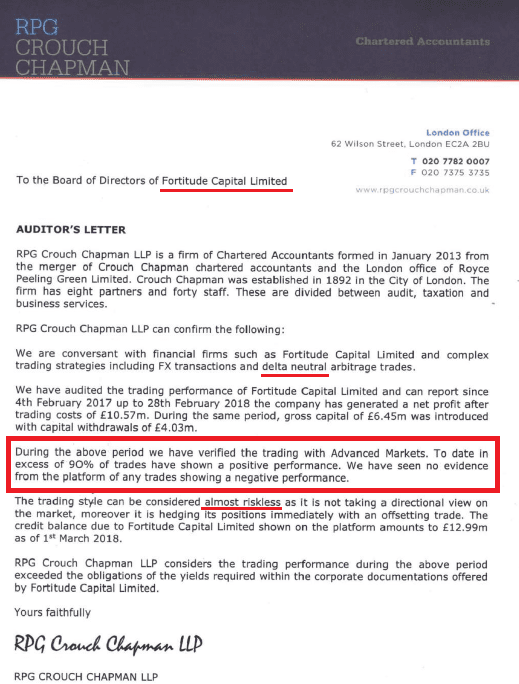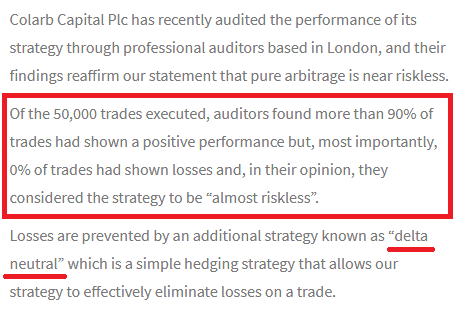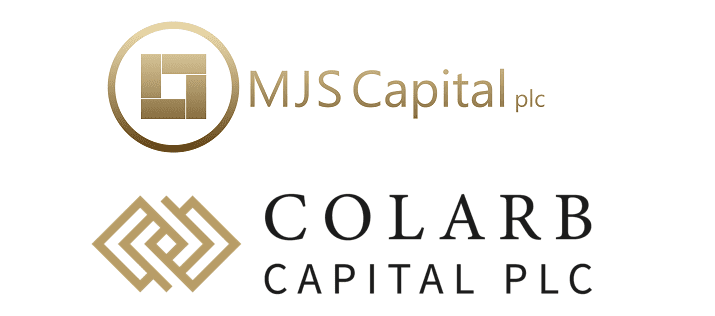A couple of weeks ago we noted the name change of MJS Capital to Colarb Capital. At the time of writing the mjs.capital site had been withdrawn and no website was available for Colarb Capital.
The mjs.capital website has now been restored, with a pop-up explaining the reason for the name change and a redirect to the new website, colarb.capital.
MJS Capital Plc is a UK company setup in March 2015 the decision to call our company MJS Capital was not our original choice instead we chose Fidelity One Capital however regulators at the time felt this was to similar to that of another well know finance firm and we would have to choose another. [Sic. Honestly. -Brev]
MJS / Colarb has never been a regulated investment firm. I assume by “regulators” they mean it was Companies House who objected to their choice of “Fidelity One”.
How MJS’ directors managed to work in finance without hearing of Fidelity International, one of the world’s biggest investment firms with over $400 billion under management, is beyond me. I also find it difficult to imagine that they thought that naming an investment firm “Fidelity One” wouldn’t be considered too close to Fidelity.
Since the company was incorporated a number of changes have come into place and our board has changed too with this in mind we have felt the old name does not reflect our company’s new direction.
Our new strategy now involves collaborating with various company’s [sic – Brev] and assisting their endeavours by utilising our existing arbitrage strategy and so our new company name will now be known as ColArb Capital.
Collaboration + Arbitrage = ColArb
The new colarb.capital website largely repeats some high-level details about MJS / Colarb Capital’s bonds. It also claims that the strategy currently used by Colarb Capital is “almost riskless”.
Our Strategy
There are a number of Arbitrage strategies, but pure Arbitrage is considered by many as a riskless form.
Investopedia defines Arbitrage as: “occur[ring] when a security is purchased in one market and simultaneously sold in another market at a higher price, thus considered to be risk-free profit for the trader”. […]
The Algorithm
Colarb Capital Plc has recently developed an exclusive contract with a team of coders, made up of 15 highly skilled and qualified members who have helped create a series of algorithms that have taken Colarb Capital Plc’s existing strategy and enhanced its ability to find price differences in the markets thousands of times over.
Colarb Capital Plc has recently audited the performance of its strategy through professional auditors based in London, and their findings reaffirm our statement that pure arbitrage is near riskless.
Of the 50,000 trades executed, auditors found more than 90% of trades had shown a positive performance but, most importantly, 0% of trades had shown losses and, in their opinion, they considered the strategy to be “almost riskless”.
MJS / Colarb’s website is technically correct that an arbitrage strategy can be “almost riskless”. (If I can buy on one exchange at $1.30 and sell on another at $1.40, this is almost riskless as long as I can move quickly enough to take advantage.) However, it does not address the fact that raising money through a loan note paying, say, 9.85% per year, and then using the money to invest in arbitrage, is most definitely not almost riskless, because I have to find enough arbitrage opportunities to generate sufficient money to pay my bondholders 9.85% per year.
Needless to say this is not easy, and if I fail to make sufficient returns from arbitrage to pay bondholders 9.85% per year and meet my own costs, there is a risk of default.
90% positive trades?
This mention of a firm of professional auditors finding that more than 90% of Colarb Capital’s trades were positive and 0% were negative sounds eerily familiar:


Bearing in mind that the director of Fortitude Capital, former MJS-director-for-a-day Ajaz Shah, has recently confirmed that Fortitude is completely separate from and has no dealings with MJS / Colarb, it seems a remarkable coincidence that both Fortitude and MJS / Colarb have had exactly the same success rate confirmed by their accountants, using the same “delta neutral” strategy.
And, of course, the million-dollar-question is – if Colarb’s strategy is almost riskless and has been doing so well, why have some investors not been repaid on time?

